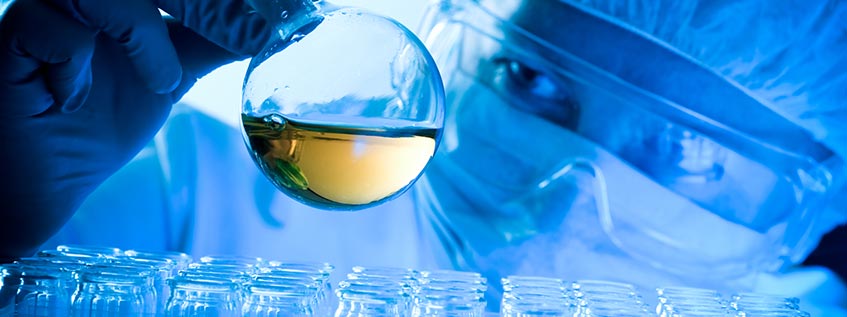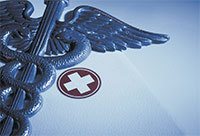Detoxification in Immunotherapy
The human body possesses self-regulatory mechanisms which are self-healing.

Information on Detoxification as Used in Immunotherapy
by Ilse Marie Issels Published in 2001
No other generation before ours has been exposed to as many man-made chemicals and toxic substances as we are. The air we breathe is polluted, the water we drink is not clean, the food we eat is processed, the food for our soul is provided by a sensationalizing media, our life style is sedentary, our body cells lack oxygen, vitamins, minerals and enzymes, our organs of detoxification and excretion are overwhelmed and our body is overloaded with waste products and toxic metabolites which render it vulnerable to all sorts of bacteria and viruses. How do we survive?
 The human body possesses self-regulatory mechanisms which are self-healing. A healthy body is capable of eliminating the toxic substances generated by its normal functioning and imposed on it by an unnatural life style.
The human body possesses self-regulatory mechanisms which are self-healing. A healthy body is capable of eliminating the toxic substances generated by its normal functioning and imposed on it by an unnatural life style.
If the production of toxic metabolites and the ingestion of toxic substances overwhelms the organs of detoxification and excretion, the body stores these substances in the connective tissues which become impeded in their important tasks of regulation and defense.
Malaise results and signals us that the body is trying to get rid of toxins and needs help to help itself. Our first aid to the body is to relieve it from the burden of waste and toxic substances so that its regulatory self-healing mechanisms can function again.
Experience has taught us that an impairment of the basic regulatory processes can lead to the "regulatory freeze" which is typical in cancer. In this case the body does not properly react to health challenges and yet the person is seemingly "healthy". Cancer patients have typically shown no sign of illness for years before the tumor manifests.
Detoxification is a decisive step towards restoration of the body's regulatory mechanisms and towards reversing cancer cells back to the behavior of normal cells. Normal cells are programmed to die when they have fulfilled their task. This programmed cell death is called apoptosis.
With all of our patients, whether they suffer from cancer or a chronic degenerative disease, every effort is made to improve the function of the liver, kidneys, colon, lung, skin and lymph system by herbal preparations, supplementation of nutrients, high fluid intake, lymph drainage, far infra-red sauna, etc., according to individual needs.
Find out more about how each of these organs in the body work to eliminate toxins in the body.
The Liver
The liver fulfills many vital tasks – digestive, hormonal, etc. – and it is responsible for the proper functioning of the organism in general. It represents the body's major detoxification system.
- inactivates and removes toxic substances that have been ingested, such as food additives, harmful minerals, toxic medications, excess hormones, etc.;
- extracts from the blood the residues and waste material resulting from the cellular break down, and transforms them so that they can be excreted by the intestines or kidneys;
- eliminates waste products and toxic metabolites resulting from intestinal fermentation and putrefaction;
- is a source of Kupffer's cells which filter and destroy foreign invaders such as bacteria, fungi, viruses and cancerous cells.
It is crucial to reduce the load of toxic metabolites and toxins accumulated in the liver tissues, and thus enhance its power of detoxification. Find out more information about the liver.
The Kidneys
 kidneys have to fulfill the important task of purifying the blood from harmful substances, such as toxic medications and other chemical substances, by filtering them out of the blood and excreting them in the form of urine. In order to optimally perform this purification of the blood, the membranes of the renal filter should not be:
kidneys have to fulfill the important task of purifying the blood from harmful substances, such as toxic medications and other chemical substances, by filtering them out of the blood and excreting them in the form of urine. In order to optimally perform this purification of the blood, the membranes of the renal filter should not be:
- damaged by irritating substances;
- clogged by too high a concentration of waste products in the blood, especially those chemical and synthetic substances that are not part of the biological cycle and cannot be properly filtered.
For a sufficient filtration of the blood through the kidneys, the blood pressure should not be too low nor too high, nor should the volume of the blood which passes through the kidneys in a given time, be too low. Therefore, hydration is important to thin the blood and lymph. Find out more information about the kidneys.
The Intestines
The intestinal tract, from the mouth to the colon, does not only have the task of digestion, but also of the elimination of toxins. When we are ill, our tongue becomes coated showing that we eliminate toxins also through our mucous membranes.
The digestion of our food begins in the mouth and continues in the stomach, and in the intestines. The complex molecules of our food are transformed into simple molecules that our cells can absorb.
As soon as the different phases of digestion are completed, the nutrients, such as the amino acids, sugars, fats, minerals, vitamins, etc., penetrate through the intestinal mucous membranes into the venous capillaries that transport them to the liver. After detoxification, the liver redistributes the nutrients into the blood stream. The various chemicals, toxins, drugs, heavy metals and excess sex hormones that were extracted, are dumped by the liver into the bile.
With the bile these substances are transported into the small intestine and continue through the intestinal tract to exit the body in the stool. The bile, which is produced in the liver, plays an important role in the evacuation of toxins from the liver, in the digestion of fat, and in our overall health. Therefore, it is crucial to pay attention to proper bile production, secretion, and supplementation.
The final phase of the transformation of the alimentation and elimination of toxins through the intestinal tract takes place in the colon. Whatever can still be utilized from the alimentation, such as fiber, is broken down with the help of the intestinal micro flora, and is transported to the liver for detoxification. The mucous membranes of the intestines are able to absorb nutrients and also toxins. As long as they are healthy, they act as "intelligent" filters, which means that they absorb from the blood stream toxins to be excreted, such as heavy metals, and they let only well digested, well prepared nutrients penetrate into the blood stream. The insufficiently digested, large alimentary molecules and toxic residues remain in the intestines to be excreted with the fecal matter.
If the intestinal passage becomes delayed, the food that cannot be eliminated, ferments and putrefies. The healthy beneficial microorganisms of the intestinal microflora may mutate into aggressive microbes which excrete toxins on their own. Constant irritation of the mucous membranes by toxic metabolites, additives, pesticides, antibiotics, medications, etc., can damage the intestinal mucosa and render it porous.
The door becomes wide open for toxins to enter the internal humoral environment. The humoral immunity becomes impaired, which is one deeper cause for many diseases, especially chronic degenerative diseases and cancer. Find out more information about the intestines.
The Respiratory Tract
The respiratory tract, the lungs and bronchi, mainly evacuates toxins in the form of carbonic gas. It may also excrete phlegm. Healthy membranes of the alveoli do not let solid waste penetrate. However, due to constant irritation by infectious microbes and other irritants, the alveoli may become porous and act as an emergency exit for toxins that the liver, kidneys and the intestinal tract did not succeed in eliminating.
These substances are transported by the blood stream towards the lungs and bronchi, they squeeze through the alveoli and we cough them up as phlegm. This phlegm not only consists of microbes and the products of their activity, but also of waste resulting from insufficient digestion and excretion. Find out more information about the respiratory tract.
The Skin
Our body tries in many different ways to get rid of toxins. If liver, kidneys and lungs do not fulfill their tasks sufficiently, the body needs help from the skin.
The skin is the largest organ of protection and defense. It is a sensory organ. It serves for thermo regulation, secretion and excretion. The skin plays an important role in the elimination of toxins and can assist the kidneys in their work.
It evacuates the waste products that are classified as crystals. They are soluble in liquids and are evacuated in the form of sweat through the sweat glands. Crystals are the residues of the metabolism of food rich in protein, such as meat, fish, eggs, dairy products, legumes and cereals. Uric acid and urea are part of the group of crystals.
These may also result from an excess of refined sugar or very acidic food. Other types of waste products and toxins are excreted in the form of rashes. Find out more information about the skin.
The Lymph System
Last, but not least, the lymph system plays a crucial part in detoxification and defense. About two liters of lymph fluid circulate in our lymphatic vessels that cover the body from the tips of the toes to the top of the head. These two liters are formed continually from the interstitial fluid that is the extra cellular fluid surrounding each one of our body cells.
This extra cellular fluid penetrates the membrane of the capillaries (the thinnest vessels), to keep the volume of lymph fluid constant and to allow the waste products to leave the cells and be carried away to the venous blood stream and evacuated. The capillaries of the lymph and the capillaries of the venous blood work together, and one compensates for the deficiencies of the other.
The network of lymphatic capillaries leads to bigger lymphatic vessels and finally to the lymphatic glands. They are placed in groups all along the lymphatic ways. Their tasks are manifold, but always aiming at the defense of the body and purification of the body fluids to maintain its proper functioning. These lymphatic glands are stations where infectious agents are filtered and lymphocytes( white blood cells, "the police") are produced.
Other sites of lymphocyte production are the spleen, the thymus, etc. If infectious agents intrude into the body, the production of white blood cells increases rapidly and proportionally to the intensity of the aggression. The lymph nodes that are closest to the site react first: they swell, get warm and hurt.
If the production of lymphocytes is insufficient, the body's defense against invaders and against cancer and other immune disorders will be impaired.
If the work of the lymph nodes is insufficient, the filtering, the degradation, and the transport of the waste products will be impeded and the bodily environment will be more and more overwhelmed with toxic metabolites and toxins.
For all of these reasons, every effort has to be made to support the lymph system.
The importance of detoxification becomes even more evident in the light of the following research findings:
- Microorganisms found to be contributory factors in chronic degenerative diseases and cancer, thrive in a toxic endogenous bodily environment.
- Cancer cells produce high amounts of toxins that inhibit immune functions, damage tissues, cause weight loss and many complications. The more cancer spreads, the bigger the load of toxins, which diminishes the possibility to control the progression of the disease.
- When cancer cells break down at a high rate due to chemotherapy and radiation, toxic products of tumor disintegration accumulate in the body. It is very important to assist the body in eliminating them. The success of these efforts may determine whether the therapeutic endeavors will be successful or not.